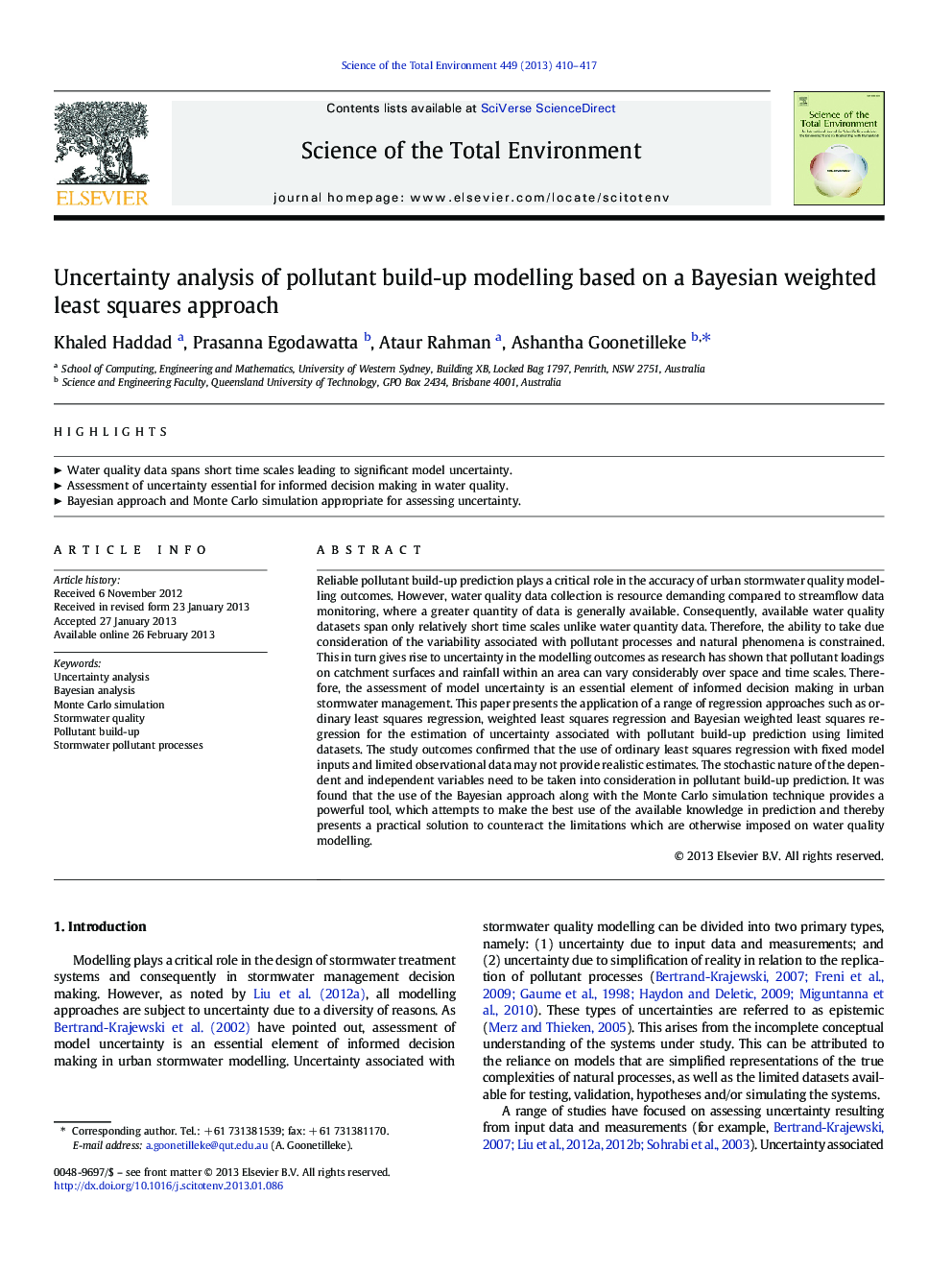| کد مقاله | کد نشریه | سال انتشار | مقاله انگلیسی | نسخه تمام متن |
|---|---|---|---|---|
| 4428881 | 1619805 | 2013 | 8 صفحه PDF | دانلود رایگان |

Reliable pollutant build-up prediction plays a critical role in the accuracy of urban stormwater quality modelling outcomes. However, water quality data collection is resource demanding compared to streamflow data monitoring, where a greater quantity of data is generally available. Consequently, available water quality datasets span only relatively short time scales unlike water quantity data. Therefore, the ability to take due consideration of the variability associated with pollutant processes and natural phenomena is constrained. This in turn gives rise to uncertainty in the modelling outcomes as research has shown that pollutant loadings on catchment surfaces and rainfall within an area can vary considerably over space and time scales. Therefore, the assessment of model uncertainty is an essential element of informed decision making in urban stormwater management. This paper presents the application of a range of regression approaches such as ordinary least squares regression, weighted least squares regression and Bayesian weighted least squares regression for the estimation of uncertainty associated with pollutant build-up prediction using limited datasets. The study outcomes confirmed that the use of ordinary least squares regression with fixed model inputs and limited observational data may not provide realistic estimates. The stochastic nature of the dependent and independent variables need to be taken into consideration in pollutant build-up prediction. It was found that the use of the Bayesian approach along with the Monte Carlo simulation technique provides a powerful tool, which attempts to make the best use of the available knowledge in prediction and thereby presents a practical solution to counteract the limitations which are otherwise imposed on water quality modelling.
► Water quality data spans short time scales leading to significant model uncertainty.
► Assessment of uncertainty essential for informed decision making in water quality.
► Bayesian approach and Monte Carlo simulation appropriate for assessing uncertainty.
Journal: Science of The Total Environment - Volume 449, 1 April 2013, Pages 410–417